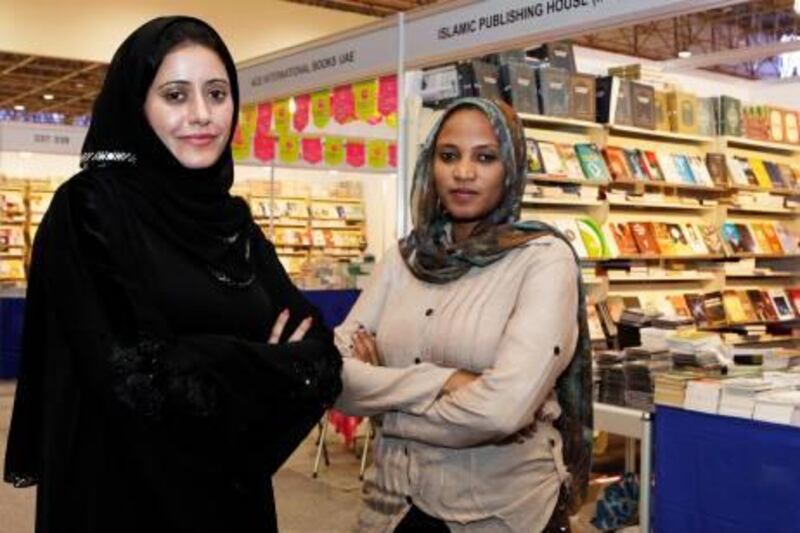SHARJAH // Eight Arab writers who took part last year in a writing retreat sponsored by Sheikh Hamdan bin Zayed Al Nahyan, the Ruler's Representative in the Western Region, have released a compilation of their work, launched last night at the Sharjah International Book Fair.
Emerging Arab Voices, Nadwa 1: A Bilingual Reader was released in English and Arabic by Dar Al Saqi Books.
The writers spent 10 days last November at the Sir Ban Yas nature reserve under the patronage of Sheikh Hamdan in a workshop - called Nadwa - organised by the International Prize for Arabic Fiction (Ipaf) and the Emirates Foundation for Philanthropy.
The publication of the compilation coincides with the second Nadwa writing workshop, which hosted seven authors in the Western Region's Qasr al Serab resort from 18-26 October.
Over the course of both workshops the writers not only laboured on their own projects, but also critiqued the work of their colleagues and receiving guidance from a mentor.
By the end of the workshop each writer produced a novel or a short story of around 3,000 words, all of which were included in the compilation.
The writers were recommended for the workshops by their publishers.
Peter Clark, an Ipaf trustee and Nadwa's coordinator, said the workshop and the resulting publication were vital to identifying the future "giants" of Arabic literature.
"The prize is about more than just one winner; we are interested in the activity of literature in a more general way," Mr Clark said last night in Sharjah.
"Having young writers with already-blossoming reputations coming together at the threshold of their careers is very interesting and fruitful. The result is a remarkable happening in the Arab world, and I think in 10 to 20 years these will be the future giants of Arabic literature."
He also praised the vision of the Emirates Foundation for supporting the project from the beginning.
Nasser al Dhaheri, the only Emirati who attended last year's workshop, said he was at first hesitant about the idea of a writing retreat, because it would take him away from the lights of the city, which he loves and finds inspirational.
He said, however, that during the 10 days he was inspired to complete a story, The Stone of Desire, which is included in the compilation.
Jabbour Douaihy, who served as a mentor at both workshops, said it would be impossible not to be impacted by such an experience and that every writer helped create a "surprising and astonishing ambience" during the sessions.
Mariam al Saedi, an Emirati who took part in the workshop this year, said she had moved from seeing writing as a hobby to taking it as a serious career.
Another participant, Wajdi al Ahdal, said novels in Arabic are often not focused on suspense or passion, but that the workshop dealt with these elements specifically. Al Ahdal, who is a novelist from Yemen and part of the Beirut 39, a group of Arab writers under the age of 39, said the experience was integral to the development of his latest novel, which is set in Yemen and deals with the rape of a young girl.
He added he hopes to eventually be short listed for the Ipaf.
"Thanks to the Nadwa, I now believe it is possible," he said.











